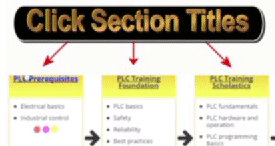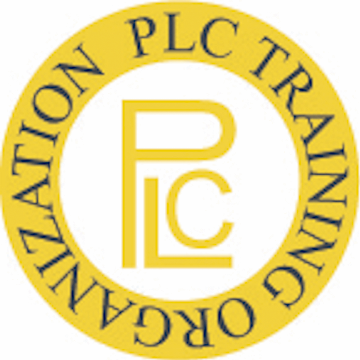PLC Training Prerequisites: PLC Training Tips and Best Practices

This is section 1 PLC: Training Prerequisite of the PLC Training Best practices. Remember Industry standards are your starting point to developing best practices. Industry standards like the new NFPA 79 2015 edition, with its European counterpart Standard IEC 60204-1. Especially follow ISA/PLCopen standards backed IEC 61131-3:2013 programming languages standards by International Electrotechnical Commission (IEC). And goes without saying follow basic standards like ISO Standards - ICS 21.020: Characteristics and design of machines, apparatus, equipment; and OSHA's Chapter 5: Utilization of Industry Consensus Standards 29 CFR 1910.212. control cabinet wiring and design standards like IEC 61439 are helpful prerequisites too.
When you are ready to move on above and beyond Industry standards as a constant improvement program, learn and implement industry PLC programming conventions and industry naming conventions so your PLC programs are more familiar and understood by your customer. That is what the PLC training tip and best practices contained in these 10 sections address. This page is for Section 1 of these 10
PLC Training Tips:
- All occupations seeking PLC training should have at least the minimum electrical safety training.
- As PLCs are predominantly used in the process and manufacturing industries, it is best to take an industrial electrical course before learning PLCs.
- Most troubleshooting that involves a PLC, also involves electrical, so it is a great idea to take the electrical troubleshooting course too, before moving on to PLC training.
- Equally so, getting familiar with the above standards is helpful too.
- Base your training decisions on past experience and current occupation you are seeking the PLC training for. An industrial IT person may not desire as heavy electrical training before learning PLC basics and programming. A maintenance person would want all they can get their hands on.
- Understand from the beginning learning PLCs is a journey, not just one quick course. Once you are caught up, technology and/or technique will have evolved requiring additional training or at least further education.
- More coming soon ...
Section 1: PLC Training prerequisites:
The tips and best practices on this page will be helpful for ...
The commercial electrician, industrial IT person or the mechanic cross training and others.
Bookmark this page or site; as new best ways for PLC technician, industrial electrician, instrumentation technician and others to perform prerequisites task are verified, they will be added here.
PLC Training Best Practices:
1.1 PLC Training Topics:
It had some challenging faults that actually helped me improve my troubleshooting skills which I have since been able to apply on my current job as an industrial electrician. For learning and value it was excellent.1.2 PLC Training Methods
Let me first say how great your program is. A great way to hone my troubleshooting skills. Some people will get up in the morning and have a coffee and play a game of solitaire on the computer. Myself, even though I have finished all three programs, I still try to solve one or two in the morning with my coffee. Just waiting for a new series to be released, is this going to happen? If so, when? (The next in series is Advanced Troubleshooting << follow link to see)
Next ... Section 2: PLC Training Foundation Best Practices. To learn more best practices seek out this Instructor Based PLC training.

Recommended PLC training path by occupation...
 Mechanic
Mechanic Industrial Electrician
Industrial Electrician Industrial Engineer
Industrial Engineer Commercial Electrician
Commercial Electrician Instrumentation Tech
Instrumentation Tech Industrial IT
Industrial IT Maintenance Manager
Maintenance Manager Mechatronics Tech
Mechatronics Tech Software Programmer
Software Programmer
